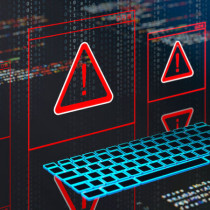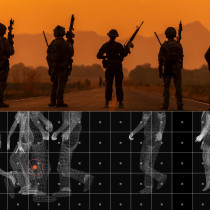Inside peek at the Message Lab's
anti-virus control room
In a corner of a two-storey office
block in a modern business park
just off the motorway near
Gloucester in western England,
there is a room. Sealed off by
thick, floor-to-ceiling panes of
glass and a stout wooden door, it
looks like a scaled-down version
of the high-tech bunkers typecast
by Hollywood as the place from



































































